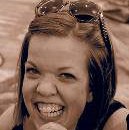- A
- A
- A

As someone that does Public Relations and Communications for a disability focused national nonprofit and a local Center for Independent Living, I do a great deal of thinking about how the disability movement gets our message across and how we can build coalitions with other groups of people that experience oppression. However, what I have found is that, far too often, in our effort to emphasize the importance of one of our issues, we further marginalize another oppressed group.
For example, within the disability community, the institutionalization of disabled people through nursing homes is a huge problem that we fight on a daily basis- and rightly so! The institutional bias, which mandates that federal dollars pay for long term care in a setting that is 33% more expensive and 100% more isolating than living in a community with attendant services, is nonsense. But, in an effort to get how nonsensical this truly is, you often hear Disability Rights Activists compare the lives of people in a nursing home to being worse than those of prisoners serving time in America’s justice system. While there might be some truth to the idea that people in nursing homes lose many fundamental freedoms, unless we personally know the oppression that prisoner’s face, we can’t really make this analogy. Activist Janine Bertram, who has worked tirelessly both for disability rights and the rights of people who are incarcerated, describes this analogy as, “the disability community’s exclusion and condemnation of prisoners.” She highlights how this analogy ignores the suffering of people have lost their rights from being incarcerated in prisons and may even treat such suffering as justified.
Further, just last year, the Washington Post had an article titled, “Why a Man with Intellectual Disabilities has Fewer Rights Than a Convicted Felon.” While I completely understand the point the author was hoping to make (that someone in a legal guardianship is not allowed to decide where he would like to live, work or with whom he would like to hang out), and can even give them a huge high five on using the correct terminology, making this comparison between the disability community and convicted felon’s only plays Oppression Olympics. By Oppression Olympics I mean when someone compares his/her experience of oppression to that of others in an effort to show that he/she is more oppressed and worse off.
However, what I think we really want to do when we play Oppression Olympics is to draw upon the power of a common situation that everyone agrees is bad. Most everyone can agree that life in prison is terrible, so if we make the analogy that living in nursing home is worse than living in prison, it may persuade a person that may know nothing about the politics of nursing homes to the fact that nursing homes are not just bad, but they’re really bad! I often see the same thing being done surrounding language. For example, we all know that when the n-word is used, it is meant to be violently bigoted and racist. In today’s age, there is simply no excuse for not knowing its wrong if you use this word. Thus, activists will often try to draw upon this common understanding of the n- word as bigoted when referring to other words that are deemed offensive by a group of people. We often hear things like, “No one uses the N-word anymore, so they shouldn’t use the M-Word either, because it’s just as bad.” Except, what we’ve done in that moment of trying to help someone understand the impact the M-Word makes, is draw a huge dividing line between ‘us’ and ‘them.’ Both terms have a long history of oppression; however, they are two very different histories. Further, such an analogy ignores the fact that racism still exists and can produce deadly results. It is not a fact that no one uses the N-word anymore and so by saying this, you are denying the experiences of racism that many people still endure daily.
Instead, I would suggest, when drawing analogies between two oppressed groups, build bridges instead of dividing communities. First, it is important to note that when these analogies are done badly, they alienate people from the movement. It is a fact that there are millions of disabled people that are currently in the prison system. Moreover, there are thousands of Little People that are Black. So, the disability movement needs to be their movement as well. Denying features of their oppression sends them the message that they are not one of us and are not welcome in our vision for the future.
As a general rule, it’s probably safe to say that you shouldn’t draw an analogy between identities that you yourself do not hold. Thus, if you are both female and disabled, then it’s probably safe to draw an analogy between these two worlds. However, if you are male and disabled, it’s safe to assume that this is not a safe route to take. We all sit at an intersection of marginalized communities at some points in our lives, so find your intersection and start directing traffic!
Contact: Leah Smith